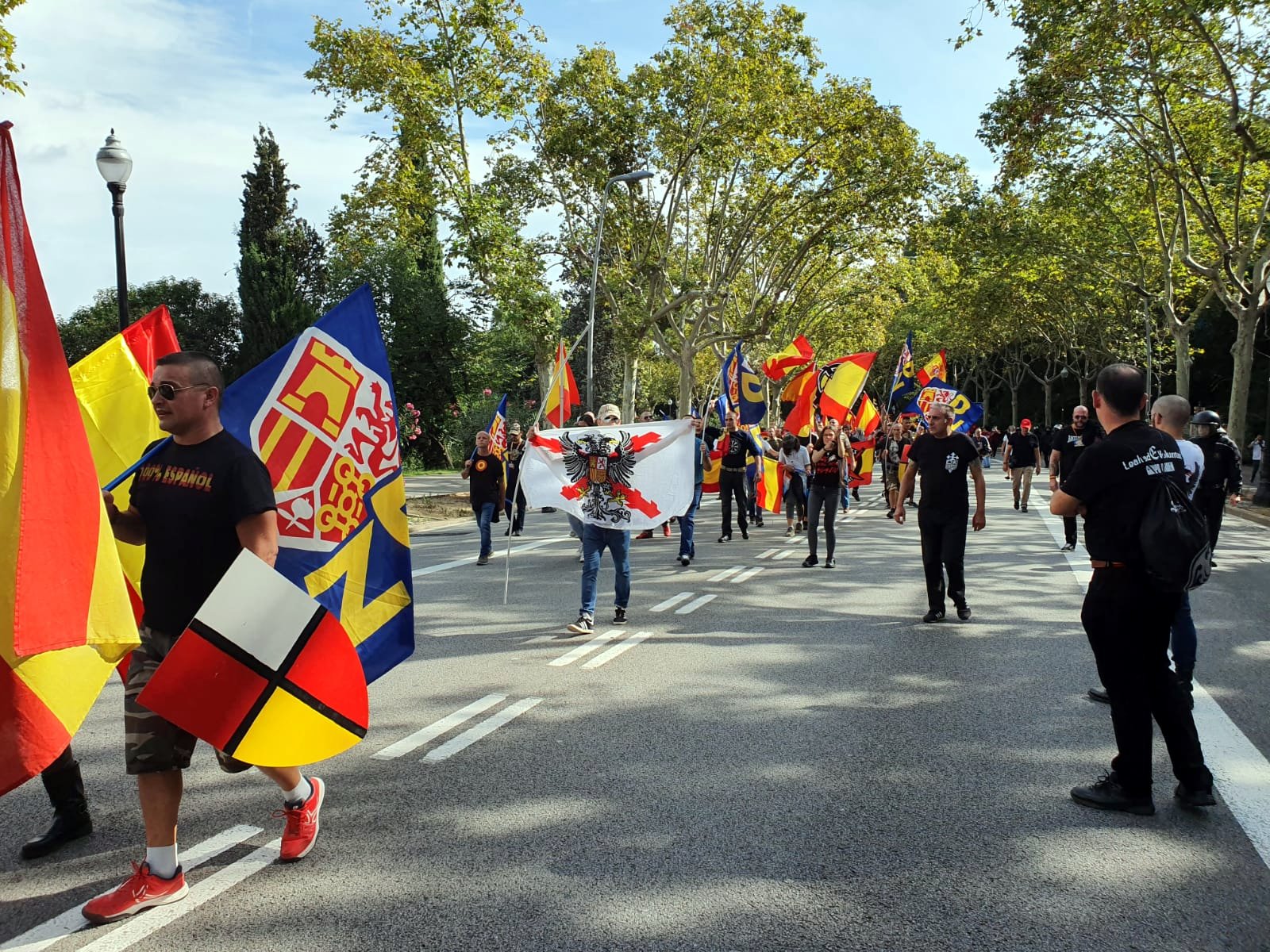"The extreme right, and its most violent and radical section, the ultra-right, is not a monolithic or straightforward phenomenon, but an ideological space that has features in common yet expresses them in ways that are different and even contradictory. Among the common elements, an attitude of intransigence, a contempt for dialogue, a lack of empathy for adversaries or those perceived as different, a rejection of immigration, a punitive vision of justice and authority, the defence of hierarchies and nationalist glorification, which in Catalonia is, above all, Spanish but also, in an incipient way, Catalan." These are some of the conclusions of the report L'extrema dreta a Catalunya i Espanya (The extreme right in Catalonia and Spain), prepared by the Catalan government's Office of Civil and Political Rights, and released this Monday.
The 39-page report notes at the outset the different historical context of the extreme right in Spain and Catalonia, in comparison with other European experiences: quoting Spanish novelist Isaac Rosa, it notes that "the Spanish democracy is the only one in Europe that was not constructed on the basis of the defeat of fascism, the only one which was not born anti-fascist", and it proceeds to give an historical summary, noting the areas in which Francoism has survived over the 45 years since the dictator was replaced by his designated successor, king Juan Carlos, father of Spain's current head of state.
The study then examines in detail the activity of the far right, differentiating three spheres - electoral, activist and institutional - and it concludes that in the first two of these, "the characteristics of the extreme right operating in Catalonia are not very different from those of other European countries, both in terms of the political proposals presented in the elections and the groups that are active on the street, disseminating proposals that are quasi-fascist or, directly, fascist, assaulting and attacking people, homes, associations and institutions." The report gives a comprehensive summary of the documentation of incidents of these types in Catalonia.
However, with regard to the other sphere, that of the institutions, "the structures of the Spanish state have an ideological bias towards the far right, a consequence of the Franco regime and the lack of any purging and removal of the fascist legacy in the administration." In addition, the report stresses that "this bias is especially worrying in areas such as the judiciary, the police and the armed forces. This presence of the extreme right in certain structures of the state also translates into collusion, understanding and even collaboration with the other fields of the far right, those of electoral activity and activism."
What can be done?
The report advises that programmes to detect radicalism or authoritarian and discriminatory approaches among the Spanish police forces should be implemented, as has been done in Germany. And also in line with the German case, "education in historical memory and democratic values with an anti-fascist perspective should be introduced and strengthened, for both children and adolescents, as well as in police academies and the schools for judges and prosecutors".
This way, claim the authors, "it would be much easier to prevent and combat the outbreaks of neo-fascism that are emerging and replicating in our society."
The presence of Vox
The study also looks at the growth of the far-right political party Vox in Catalonia and Spain. This party only won seats on the Spanish Congress for the first time in April 2019, with 24 MPs, and then it swept to 52 deputies in the repeat elections in November. "Vox fielded candidates for election who have fascist and Nazi pasts," the report states.
"At the head of the candidacy in Barcelona, the Vox leadership under Santiago Abascal placed two people who have been prosecuted for hate crimes against immigrants, who had previously belonged to the xenophobic Plataforma per Catalunya (PxC) party, dissolved last February, which became Vox's main political hunting ground for candidates in the May 26th municipal elections, while most of its leaders come from other far-right organizations: from Fuerza Nueva to the Frente Nacional de la Juventud, and Democracia Nacional", it adds.
The report also states that "the far right manufactures fake news, as can be seen with Vox and Demoscat, an agency created by the far right that publishes surveys favouring the far right, which are later published as news by like-minded media and shared on social media by extremist supporters."
Office of Civil and Political Rights
The Catalan government's Office of Civil and Political Rights, part of the department of the vice-presidency, was created following the restoration of Catalan self-government at the end of the application of article 155. Its aim is to define and coordinate government policies related to civil and political rights.
This report, commissioned by the Catalan Parliament, will be followed in the next few months by two more specific reports on the far right, in particular with respect to the rights of women: The growth of the far right in Europe and the rights of women, and Women's rights under threat in Spain.

